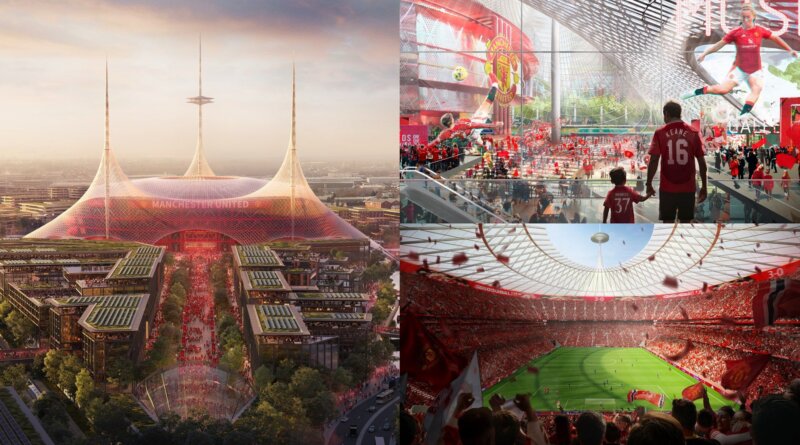Man Utd Eyes 2035 Women’s World Cup Final at New Stadium
Man Utd’s Ambitious Push for 2035 Women’s World Cup Final
Manchester United are making bold moves to host the 2035 Women’s World Cup final at their envisioned £2 billion stadium, aiming to shift the iconic event away from Wembley to Manchester. The plan, though not officially confirmed by the club, has reportedly become clear among football’s senior figures—United wants Old Trafford’s successor to take center stage for the world’s biggest women’s football showcase.
Inside Man Utd’s Vision: The New £2 Billion Stadium Project
The driving force behind Manchester United’s proposal is a sweeping redevelopment project in south-west Manchester, backed by the Greater Manchester “Growth Plan.” Mayor Andy Burnham has championed this regeneration, which includes 15,000 new homes and a state-of-the-art stadium with a 100,000-seat capacity. This ambitious scheme, intended to thrust the region into the global spotlight by 2050, recently secured a £26 million funding boost for new housing in the Old Trafford area.
Burnham describes the regeneration as a transformative moment for Greater Manchester, positioning it to rival the world’s great cities in sport, infrastructure, and ambition. The new stadium is envisioned as a jewel in this transformation, setting the stage for major international events, with the 2035 Women’s World Cup final as its crown jewel.
Land Acquisition: The Key to Man Utd’s Stadium Dreams
A critical hurdle remains: the acquisition of a key rail terminal behind the current Stretford End, owned by Freightliner. Ongoing negotiations will determine whether United can secure the land needed for the new “super-stadium.” While renovating the existing Old Trafford has not been ruled out, the club’s leadership strongly prefers a complete rebuild, believing only a brand-new stadium can meet modern demands and global event standards.
Why Manchester? Arguments for Moving the Final North
Manchester United argues that their proposed stadium will eclipse Wembley in capacity, technology, and fan experience. Club leaders are adamant that if the Women’s World Cup final comes to the UK, it belongs in the nation’s newest and most advanced football arena—not just by tradition at Wembley in London. They also believe this move would distribute major sporting events more equitably across the country, giving the North of England its own world-class stage.
United’s Chief Operating Officer, Collette Roche, has spoken openly about the club’s commitment: “We want to build the world’s best football stadium as a new home for Manchester United and a venue fit for the biggest international events, including the 2035 FIFA Women’s World Cup, surrounded by a vibrant business, leisure and residential district served by excellent transport links. We are determined to play our part, together with other stakeholders, in making this vision a reality, and unlocking the huge benefits it can deliver for the surrounding community and wider region.”
She further emphasized that government support is needed not for the stadium construction itself, but for the surrounding infrastructure and regeneration—highlighting the wider economic and social benefits of the project.
Economic Impact: Boosting Manchester and the UK
The economic implications of this redevelopment are immense. Oxford Economics estimates the project could inject up to £7.3 billion into the UK economy annually, creating 92,000 jobs across construction, hospitality, tourism, and related industries. In addition, projections include 17,000 new homes and more than 1.8 million extra visitors each year, making Manchester a hub for international sport and tourism.
The FA’s Response and the Battle for the Final
The Football Association (FA) traditionally favors Wembley for headline events, and United’s bid may provoke a heated debate over the final venue. However, Manchester United is preparing to make a compelling case to both the FA and FIFA, arguing that the North deserves its own moment on the world stage. The question now hangs: will tradition keep the final at Wembley, or will Manchester’s ambitious plans reshape English football’s event landscape?
Opinion: A Defining Opportunity for Northern England
If Manchester United succeeds in bringing the Women’s World Cup final to its new stadium, it wouldn’t just elevate the club or the city—it would signal a major shift in how top-level football events are distributed in the UK. This move could inspire greater investment across the North, give local fans a once-in-a-generation experience, and set a new standard for women’s football worldwide. For more news on how this story develops and on global football, visit for more news.
Your global gateway to nonstop football coverage:
News Goal
Share this content:
